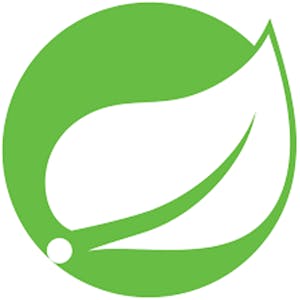Embedded Systems using C
About this Course
Embark on a comprehensive journey into Embedded Systems with this course. Module 1, \"Introduction to Embedded Systems,\" lays the foundation by exploring principles, architectures, and essential devices. In Module 2, \"Programming Fundamentals in C,\" participants master C programming essentials, including operators, storage classes, and flow control structures. Transitioning to Module 3, \"Advanced Concepts in C for Embedded Systems,\" participants delve into functions, arrays, pointers, and string manipulation techniques. By the course\'s conclusion, participants emerge equipped with the knowledge and skills necessary for confident navigation and programming in C for embedded systems development. Learning Outcomes: Upon completing this course, participants will: 1) Gain a solid understanding of Embedded Systems principles, architectures, and essential devices. 2) Master C programming essentials, including operators, storage classes, and flow control structures. 3) Dive deep into advanced C concepts crucial for embedded systems, such as functions, arrays, pointers, and string manipulation techniques. 4) Acquire practical skills through hands-on projects and exercises, enhancing their ability to develop embedded systems applications. 5) Develop confidence in their ability to design, program, and troubleshoot embedded systems using C. Target Learners: 1) Electrical Engineering or Computer Science Students: Those pursuing degrees in electrical engineering or computer science, particularly with an interest in hardware-software integration and low-level programming. 2) Embedded Systems Professionals: Engineers or professionals already working in the field of embedded systems who want to deepen their understanding of C programming for embedded applications and enhance their skill set. Pre-requisites: 1) Basic Programming Knowledge: Familiarity with programming concepts such as variables, loops, functions, and data structures. 2) Understanding of C Programming Language: Proficiency in the C programming language including syntax, data types, pointers, memory management, and basic file operations. 3) Fundamental Electronics Knowledge: Basic understanding of digital electronics, microcontrollers, and input/output (I/O) interfacing concepts. 4) Computer Architecture Basics: Knowledge of computer architecture fundamentals such as CPU, memory, input/output devices, and the concept of interrupts.Created by: EDUCBA

Related Online Courses
Course four of the Anthos series prepares students to consider multiple approaches for modernizing applications and services within Anthos environments. Topics include optimizing workloads on... more
In this course students will learn the why the Spring Framework is one of the dominant Java development Frameworks. the course covers a variety of techniques for Java Object Dependency Injection... more
Master ASP.NET Core MVC with .NET 8 in this comprehensive, hands-on course. Learn to build a full-fledged e-commerce web application from scratch, implementing key concepts like MVC architecture,... more
Welcome to Sustainable Cities Case Studies, the third and final course in the Building Sustainable Cities Specialization. This course is intended to build upon foundational concepts and ideas... more
This course introduces students to the local and global lessons in health equity research and practice, covering topics such as the effects of structural drivers and systems of power on health... more



![ASP.NET Core MVC [.NET 8] - The Complete Guide](https://d3njjcbhbojbot.cloudfront.net/api/utilities/v1/imageproxy/https://d15cw65ipctsrr.cloudfront.net/56/04515e74674b5da97a448008e1fb6b/skill_image_square.jpg?auto=format%2Ccompress&dpr=1&w=300&h=300&fit=crop)



